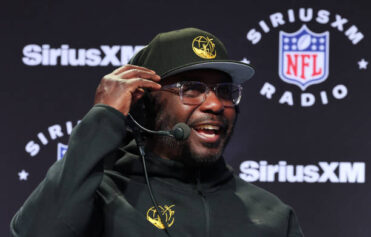Data has transformed the internet age into the information age and now to the age of accessibility in my eyes. When I realize how easily we can grasp concepts due to the ability to instantly research whatever is intriguing or plaguing our minds at the moment, it causes me to ponder the difficulty of the previous generations.
I can imagine going to a library to find an obscure book that may possibly have the answer to a question or potentially wasting my time and diligence in the process. Theres no excuse to be ignorant to anything that strikes you as interesting or worth arguing over at this juncture in time.
Whether debating Michael Jordans 86 -87 scoring average, the number of electoral votes Florida has, or who won Album of Year at the 1999 Grammys, all answers are easily obtainable and quite literally in the palms of our hands. Before ever visiting a different state or city, we now also have the ability probe the area before ever setting foot there.
The internet allows communication between people to flourish from cities on opposites ends of the nation. Without any intention of doing so, I believe we have all contributed to de-regionalizing the country in the process.
The first time I actually realized how much the world has changed due to the internet was while I was in college in Washington, D.C. Students I came in contact with from other regions were able to identify myself and my fellow New Yorkers simply by the way we dressed. Not only did it make me realize how far reaching New York Citys influence was, but also small the world had become.
Barring a few words, we all used the same slang. We all referred to the same media outlets and listened to the same music for the most part. When Drakes albums released, his music came blaring from nearly every room in the dormitories I resided in, regardless of where the listener was from.
During the time I was in college, I had not yet ventured to Los Angeles, but had a well conceived notion of its culture, scenery, and climate. From reading articles online or watching music videos on YouTube, when I finally reached the west coast in March of this year, I was far from being in awe of what I was experiencing. While physically being in the midst of L.A. was immeasurably a superlative experience as opposed to simply viewing it online, it once again made me muse the idea of the digital era. Not only has the world become smaller and the country been de-regionalized, social media has given us the ability to document our days, thoughts, and sometimes politically incorrect opinions.
Data, Wi-Fi, and signal have become the dominant words of millennial vernacular. However, data plans on phones have exceeded the importance of the practicality of the phones actual purpose: to make calls.
Millenials spend less time calling people (excluding on FaceTime) and more time texting or scrolling through their feeds. This is when data plans begin to supersede the service for making calls. Fearing being charged for going over their data allowance, we scramble for Wi-Fi access.
The only thing worse than going over your allotted data or not being in range of Wi-Fi is losing your signal altogether. Ive observed how some of my peers become frantic whenever they lost their signals on their phones or tablets. The vexation that sets in upon their faces mimics that of someone who just found a ticket oo their car for a parking meter that expired two minutes prior. God forbid we dont have access to our social networks.
Social media, however has made everyone relatively accessible in one way or another. Whether through Facebook, Instagram, Twitter, or Snapchat, these mobile apps have given us insight into the lives of our peers, celebrities, strangers, and even our President-Elect. The engagement that these platforms foster gives us the opportunity for our voices to be heard with swiftness and responses to sweep in just as rapidly.
In social settings, millenials seem to be less social in comparison to other generations which may be caused by our phones. Most choose to show their followers how much theyre enjoying their time rather than actually basking in the moment. With our access to the lives of celebrities, we attempt to mimic their opulent lifestyles on a much smaller budget.
Social media is at times a vehicle that fosters the growth of faades and cloaks insecurity.
The pitfall of these mobile applications is that it has essentially made interpersonal interactions more difficult for millennials. Since the majority of the generation lives with our heads down in our phones, effectively in a trance, some of us have become socially awkward and face discomfort when face-to-face with another individual.
The grandiose online persona that is embodied from behind a username dissolves into a shy, reticent caricature. While some have shown the ability to maintain the vibrancy displayed through social media, many find themselves compromised.
I personally use my social media actions mostly for observational purposes. I rarely if ever post anything. I never cared for much attention, and believe my accounts are the perfect reflection of such. I, however, do not fail to comprehend its profound affect on those who preceded social media. My aunt, who is a member of Generation X, effectively employs Facebook to connect with her peers whom she may have lost contact with over the years, or connect with family that she recently discovered.
I spend the majority of my time on my phone either reading articles or debating with my friends on music or sports topics via texts or FaceTime. In the last year, music streaming bypassed both and is now at the forefront of my mobile activity. Being able to instantly access millions of songs is still astonishing to me.
From vinyl to cassette to CDs, transporting our music libraries were cumbersome and without any debate, annoying. Thanks to the genius of Steve Jobs, our record collections were compacted into the modern day stylish iPod. Music streaming is the offspring of Jobs brainchild.
As I am writing this, Im listening to J. Coles latest album, 4 Your Eyez Only. Thanks to TIDAL, it became available shortly before midnight. A few short years ago, without an album leaking online prior to its release date, we would have to actually get up and go to a store to purchase an album which may be days or weeks after its release. Some dread the idea more than going to the library to inquire on a subject as previously mentioned.
Outside of streaming music, I frequently use banking apps to keep track of my finances or sports apps to stay on top of scores, news, and transactions throughout the day.
Social media, the use of data, and mobile applications are relatively new and we are still in the process of adapting to life with them. There will be a generation that will never know a world without these platforms being at their dispense, just as there is now a generation that never experienced a world without the internet.
These services are here for our advancement and have quickly captivated a generation simultaneously as well. Children today use tablets in classrooms across the country, a far cry from the educational setting I found myself in in the not too distant past.
Whats left for us millenials and the prior generations, is only to imagine what will be the next form of this ever evolving technological boom.






